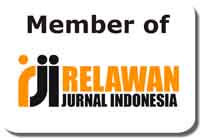University English Teachers’ Challenges in Handling Unmotivated Learners: A Case Study
Abstract
Keywords
Full Text:
PDFReferences
Al-Mekhlafi, M. A. A. (2016). The impact of class attendance on final examination scores of Yemeni EFL student teachers. Chetana Education International, 1(1), 110–125.
Bahramy, M., & Araghi, M. (2013). The identification of demotives in EFL university students. International Journal of Basic and Applied Science, 1(4), 840–845.
Basit, T. N. (2010). Conducting research in educational contexts. Continuum International Publishing Group.
Bradford, A. (2007). Motivational orientations in under-researched FLL contexts: Findings from Indonesia. RELC Journal, 38(3), 302–323. https://doi.org/10.1177/0033688207085849
Braun, V., & Clarke, V. (2006). Using thematic analysis in psychology. Qualitative Research in Psychology, 3(2), 77–101.
Creswell, J. W. (2014). Research design: Qualitative, quantitative, and mixed methods approach. Sage Publications, Inc.
Dornyei, Z. (2001). New themes and approaches in second language motivation research. Annual Review of Applied Linguistics, 21, 43–59.
Dornyei, Z. (2005). The psychology of the language learner: Individual differences in second language acquisition. Lawrence Erlbaum.
Dornyei, Z., & Ushioda, E. (2011). Teaching and researching motivation (Second Edition). Routledge.
Fareh, S. (2010). Challenges of teaching English in the Arab world: Why can’t EFL programs deliver as expected? Procedia - Social and Behavioral Sciences, 2, 3600–3604. https://doi.org/10.1016/j.sbspro.2010.03.559
Fatemi, A. H., & Vahidnia, F. (2013). Self-efficacy and motivation among Iranian EFL learners: An investigation into their relationships. International Journal of English Language Education, 1(3), 79–89. https://doi.org/10.5296/ijele.v1i3.3771
Gray, D. E. (2014). Doing research in the real world (3rd Editio). Sage Publications, Ltd.
Gryz, I. (2017). Getting familiar with new students - effective ice breakers. Radomskie Studia Filologiczne, 1(5), 65–76.
Kachru, Y., & Nelson, C. L. (2006). World Englishes in Asian Contexts. Hong Kong University Press.
Kim, T. (2012). Korean EFL students’ amotivation to learn English: An activity theory analysis. AAAL 2012 Boston, 1–22.
Kirkpatrick, A. (2007). World Englishes: Implications for international communication and English language teaching. Cambridge University Press.
Klem, A. M., & Connell, J. P. (2004). Relationships matter: Linking teacher support to student engagement and achievement. Journal of School Health, 74, 262–273.
Liu, G.-Z. (2015). The trend and challenge for teaching EFL at Taiwanese universities. RELC, 2(2005), 211–221. https://doi.org/10.1177/0033688205055575
Lucas, R. I. G., Bernardo, A. B. I., & Rojo-Laurilla, M. A. (2016). Amotivation in Filipino ESL learners: Exploring some correlates. Porta Linguarum, 26, 109–119.
Moskovsky, C., Racheva, S., Assulaimani, T., & Harkins, J. (2016). The L2 motivational self system and L2 achievement: a study of Saudi EFL Learners. The Modern Language Journal, 100, 1–14.
Munoz, A. P., Palacio, M., & Escobar, L. (2012). Teachers’ beliefs about assessment in an EFL context in Colombia. PROFILE, 14(1), 143–158.
Nizar, B. A., & Flah, M. (2014). The impact of absenteeism on undergraduates’ academic performance: Evidence from Tunisian English students. Tayr Quarterly Journal, 1(2), 1–17.
Oliver, P. (2003). The student’s guide to research ethics. Open University Press.
Ozkanal, U., & Arikan, N. (2011). The relation between success and absenteeism at Esogu English preparatory school. Journal of Language Teaching and Research, 2(1), 68–72.
Pandey, P., & Pandey, M. M. (2015). Research methodology: Tools and techniques. Bridge Center.
Papi, M. (2010). The L2 motivational self system, L2 anxiety, and motivated behavior: a structural equation modeling approach. System, . System, 38, 467–479.
Saha, S. (2017). EFL Students’ “Unmotivation” toward writing classroom: Bangladeshi university teachers’ narrative reflections. BELTA Journal, 1(1), 46–63.
Sakui, K., & Cowie, N. (2012). The dark side of motivation: Teachers’ perspectives on “un- motivation.” ELT Journal, 66(2), 205–213.
Shah, S. A., Hussain, M. A., & Nasseef, O. A. (2013). Factors impacting EFL teaching: An exploratory study in the Saudi Arabian context. Arab World English Journal (AWEJ), 4(3), 104–123.
Subekti, A. S. (2017). The notions “integrative orientation” and “instrumental orientation” and their extents of relevance in today’s ELT motivational studies: a critical analysis. ELT Perspective, 5(1), 1–11.
Subekti, A. S. (2018). L2 Motivational Self System and L2 achievement: A study of Indonesian EAP learners. Indonesian Journal of Applied Linguistics, 8(1), 57–67. https://doi.org/10.17509/ijal.v8i1.11465
Sulistiyo, U. (2016). Learning English as a foreign language in an Indonesian university: A study of non-English department students’ preferred activities inside and outside the classroom. IJET, 5(1), 1–26.
Syukri, S., & Humaera, I. (2019). Gaining Motivation on English Learning for Special Need Students Using Flashcards, Foldable Books and Posters in EFL Context. Langkawi: Journal of The Association for Arabic and English, 5(2), 91-101.
Taguchi, T., Magid, M., & Papi, M. (2009). The L2 motivational self system among Japanese, Chinese, and Iranian learners of English: A comparative study. In Z. Dornyei & E. Ushioda (Eds.), Motivation, language identity, and the L2 Self (pp. 66–97). Multilingual Matters.
Walliman, N. (2011). Research methods: The basics. Routledge.
Yulia, Y. (2013). Teaching challenges in Indonesia: Motivating students’ and teachers’ classroom language. Indonesian Journal of Applied Linguistics, 3(1), 1–16.
DOI: http://dx.doi.org/10.31332/lkw.v0i0.1926
Copyright (c) 2020 Adaninggar Septi Subekti

This work is licensed under a Creative Commons Attribution-ShareAlike 4.0 International License.
Langkawi: Journal of The Association for Arabic and English indexed by:



















.png)
.png)

.png)
2.png)








